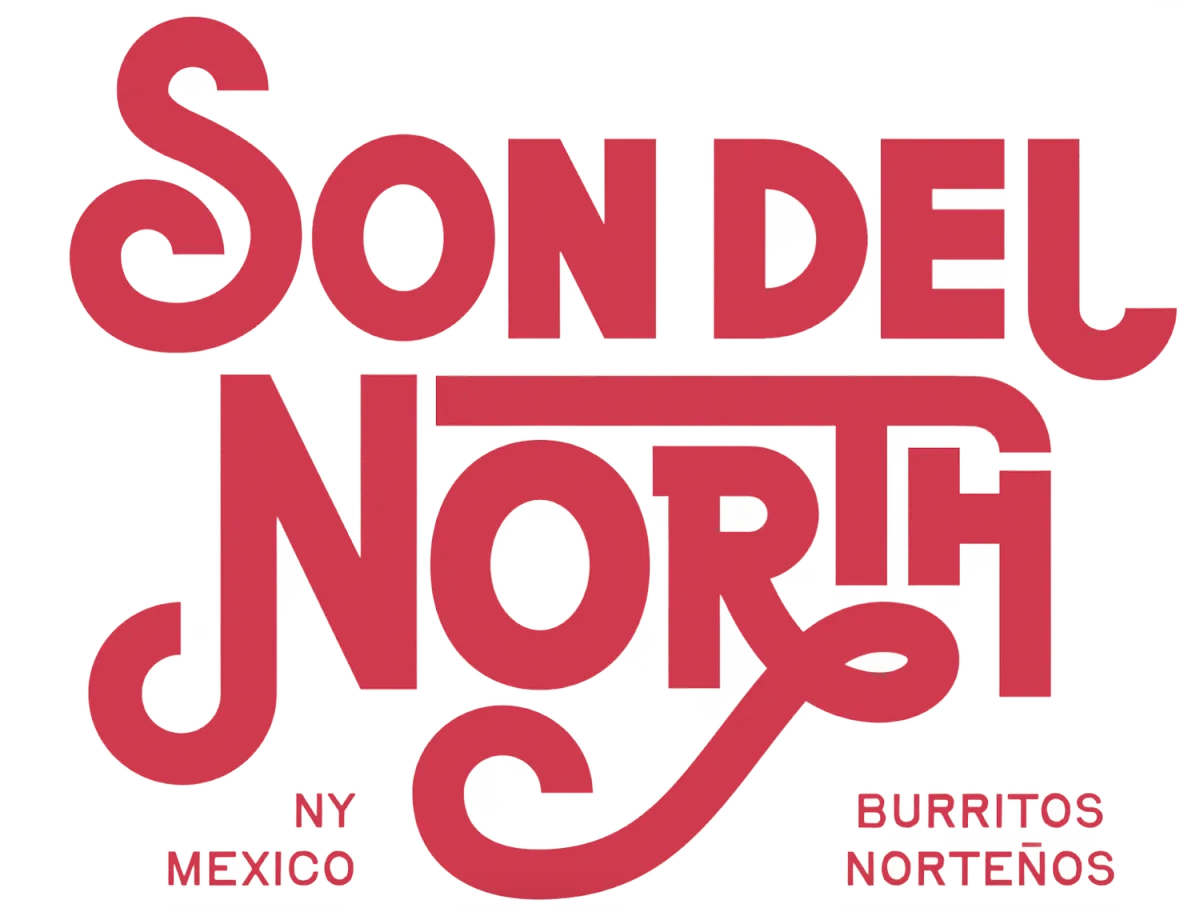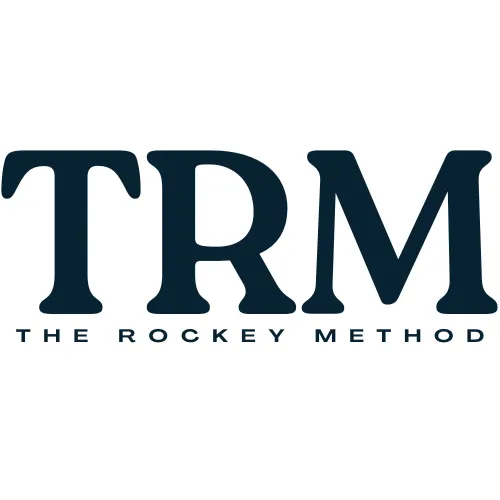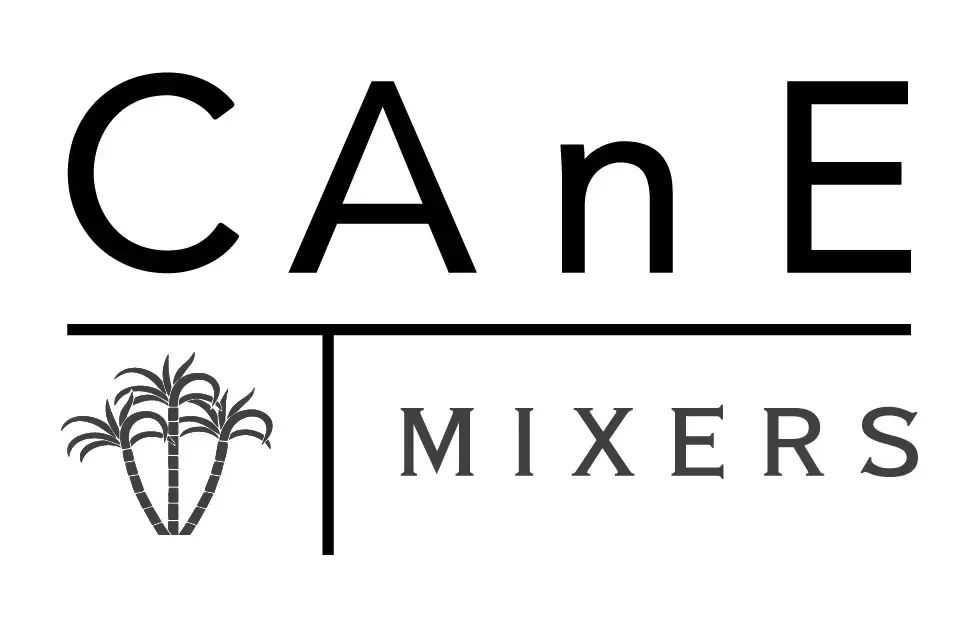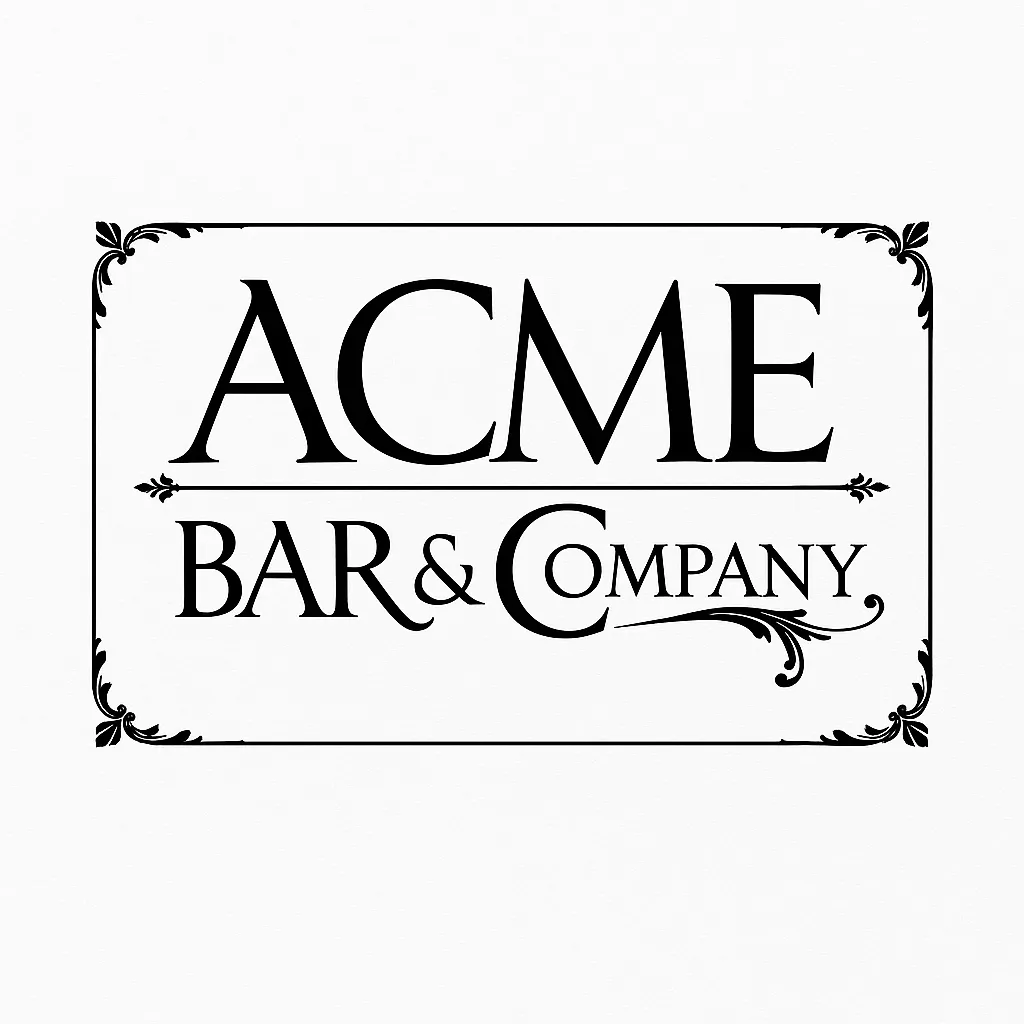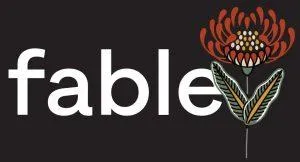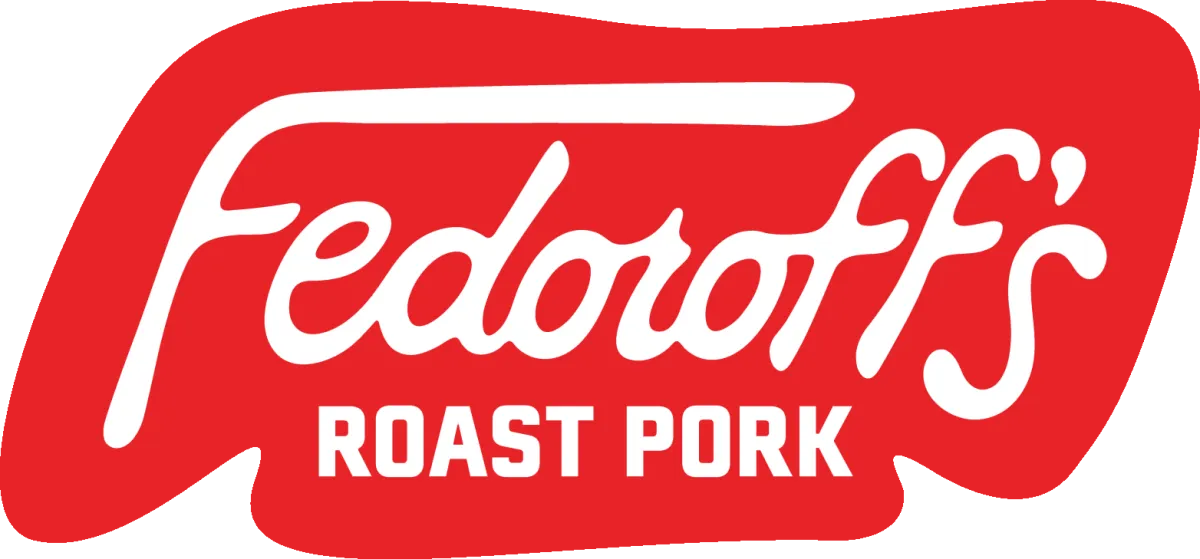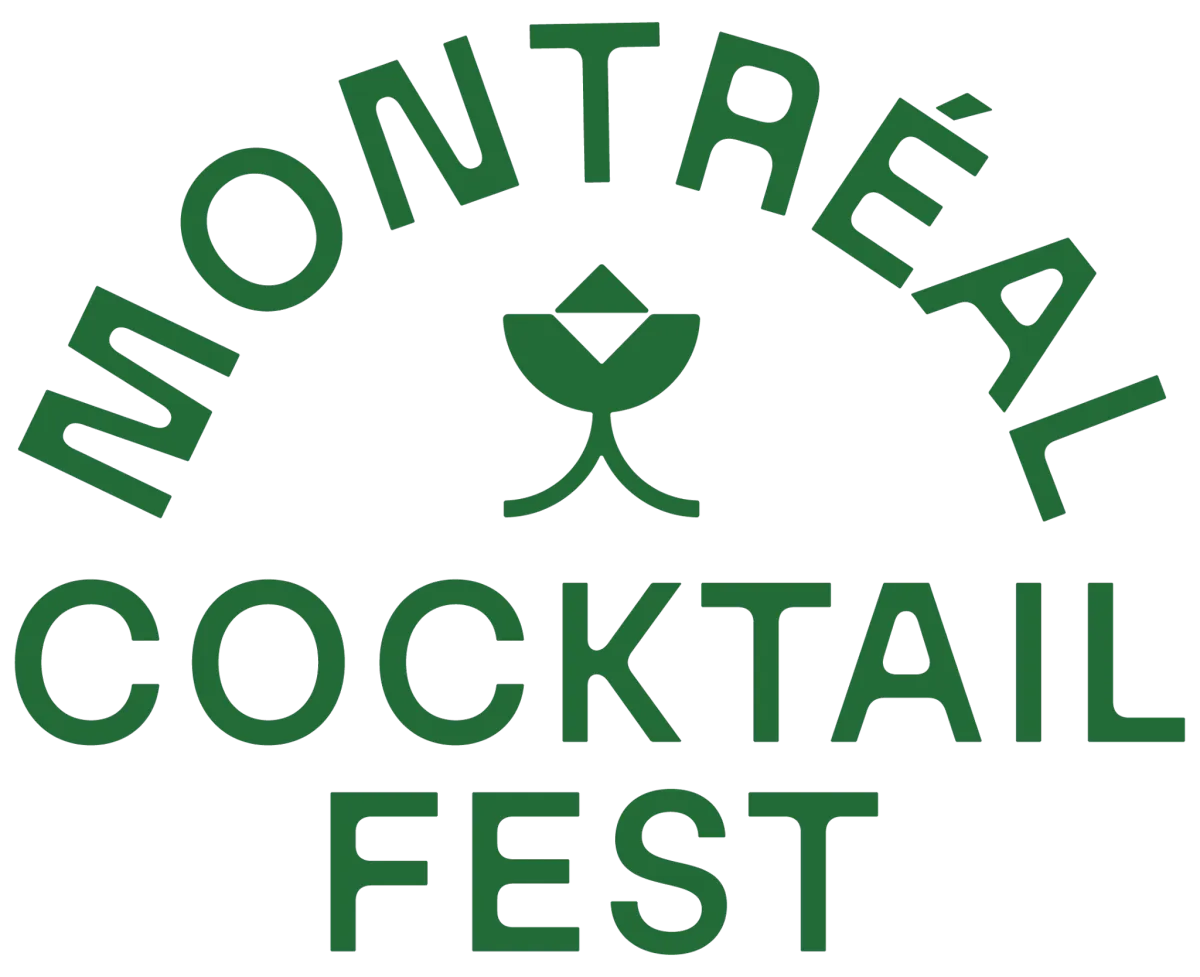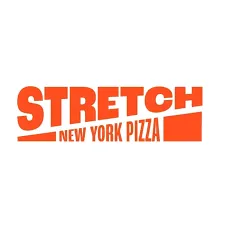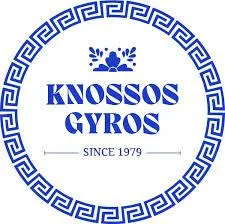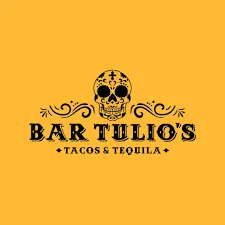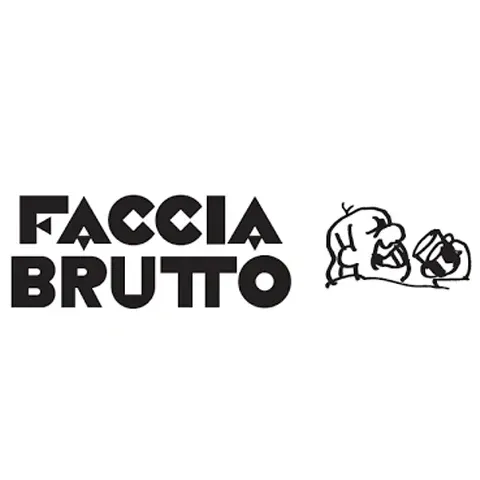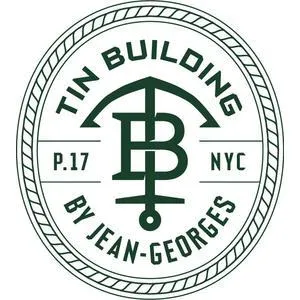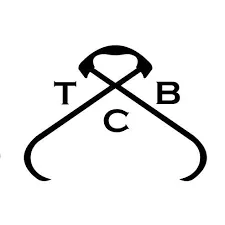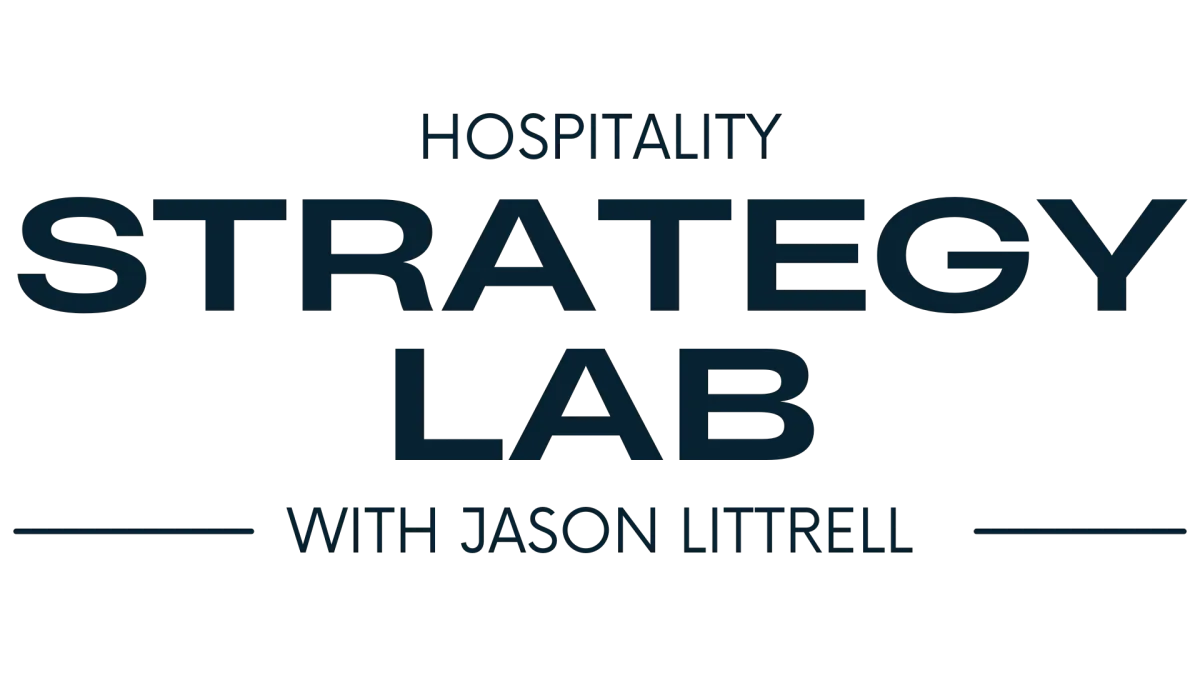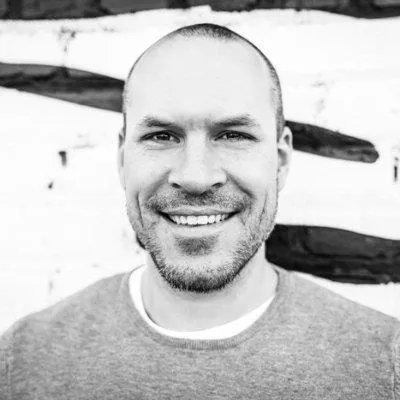
Hi. I'm Jason.
I help beverage and hospitality brands grow consistently with scalable systems.
Complete Sales, Marketing and Operations systems installed in as little as 3 days.
Hands Free: Most systems work in the background. Set it and forget it.
Save 15+ Hours a week minimum
Done For You Custom Installation and Onboarding
Manage on the go with the Mobile App
Fully Branded with your domains and brand
Detailed weekly analytics and reporting
1:1 Human Support (with me)
Flexible Plans, Pricing, and Payments
100% Happiness and Results Guaranteed
Owner POV
"If I don't do it myself it won't get done."
"I can't afford to invest in SEO or advertising"
"We're getting great word of mouth, things will pick up."
"It's just the slow season", or "The economy is shit right now"
"Tuesdays are always slow"
"I suck at marketing, and absolutely hate it."
Guest POV
"The other place only had 4.2 stars from 27 reviews."
"I called about my allergies and they texted me right back ."
"The owner texted me saying thank you last time"
"My choice is a reflection on me. It has to be good."
"I googled "Best Margarita near me and you popped up first."
"Let's just go to the place we always go to".
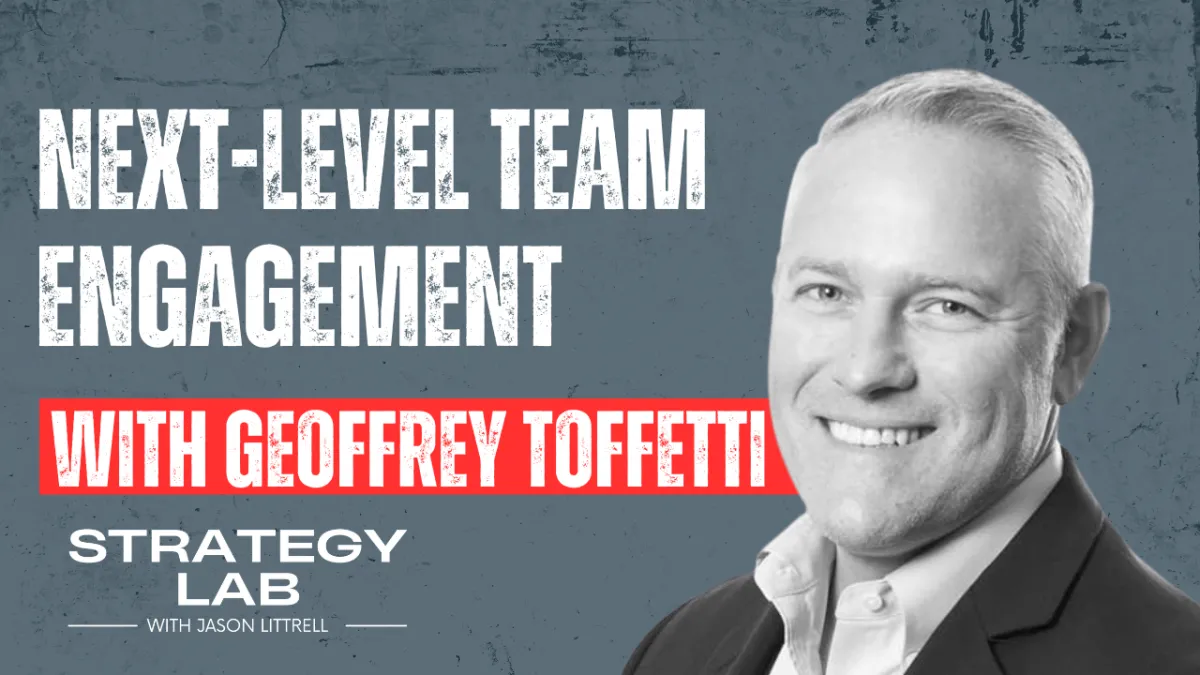
The Art of Team Engagement with Geoffrey Toffetti from Frontline Performance Group
Get 20+ reviews a week on autopilot with our Accelerator installed in 30 minutes or less. Head to Jlittrell.com for free trial.
***
In this conversation, Jason Littrell speaks with Geoffrey Tofetti from the Frontline Performance Group, discussing the importance of optimizing employee performance in the hospitality industry. They explore the challenges of employee turnover, the significance of training for sales and service excellence, and the role of data and AI in improving performance. The discussion also covers the impact of incentives and gamification on staff motivation, as well as practical advice for restaurant owners to enhance their operations and guest experiences.
Takeaways
Frontline Performance Group specializes in optimizing employee performance.
Reducing turnover is crucial for maintaining revenue.
Hiring the right people is essential to avoid significant revenue loss.
Sales and service should be viewed as interconnected.
Active listening is a vital skill for effective sales.
Training should be ongoing and adaptive to new hires.
Cash incentives are the most effective for staff motivation.
Data analysis can reveal performance gaps among employees.
Creating a culture of respect leads to better guest experiences.
Pairing staff with different strengths can enhance overall performance.
Chapters
00:00 Introduction to Frontline Performance Group
03:01 The Impact of Employee Turnover
05:26 Training for Sales and Service Excellence
08:12 Data-Driven Management and Performance Metrics
11:19 Gamification and Incentives in Hospitality
14:07 The Role of AI in Performance Optimization
16:46 Understanding Revenue Potential and Performance Gaps
19:40 Advice for Restaurant Owners and Managers
Transcript:
Jason Littrell (00:01.166)
What's up? Thank you for checking out the hospitality strategy lab. name is Jason Littrell. I'm here with Geoffrey Toffetti from the frontline performance group. They are serving almost 3000 hotels in 124 different countries and they specialize in worker performance. Joffrey, welcome to the show.
Geoffrey Toffetti (00:13.634)
Thank you, Jason, it's great to be with you, appreciate it.
Jason Littrell (00:16.28)
Thank you. So what's, tell me about frontline performance group.
Geoffrey Toffetti (00:19.692)
Yeah, so we're a company that specializes, as our name would suggest, we work with frontline teams, we help companies optimize performance at their frontline. Generally where there is revenue in play, so, you know, hotel front desks, theme park ticket counters, call centers, and most recently, restaurants and bars, where we just help to optimize the interaction with the guest and increase the revenue and try to...
give the guests the best possible experience and help the staff earn more money, which helps the company make more money. So that's the niche we're in. And we used to be a consulting and training company pre-COVID where we would actually go on site and work, as I say, elbow to elbow with the teams. And then during COVID, we flipped the model to a SaaS delivery model. So our software platform is the product now. And what we did is we took everything we learned from working on site in
thousands of locations over three decades, and we built a software to provide the entire soup to nuts toolkit that you need to optimize performance at the front line. it's training, it's recognition, it's incentives, it's goal setting, it's all the things that we would do as a consulting practice, go to a client and install all these things. We now built tools to let them kind of take care of their own destiny.
Jason Littrell (01:41.048)
So labor and recruiting is the number one complaint that I get from my clients, right? Do you guys get involved with recruiting at all?
Geoffrey Toffetti (01:49.742)
We don't get involved with recruiting per se. We do have content to help managers interview more effectively for sales forward positions. Um, a lot of times you, you're interviewing, the worst case is you're interviewing for a warm body. That's not a felon. You know, that's, don't want to get into that situation, but oftentimes you're interviewing for service oriented oriented questions and you're leaving out sales oriented questions. Um, so we do have some content there.
I would say our biggest impact on the recruiting and hiring part is we reduce turnover with our clients. When you have the right environment and the right opportunities for development, people stay longer. And if they're making really good money because you've invested in them, they tend to stay.
Jason Littrell (02:36.183)
What's how would you characterize the size of the problem? Okay, like, what's what's the what's the cost of employee turnover of hiring somebody who's bad? Who sucks?
Geoffrey Toffetti (02:40.15)
Which one?
Geoffrey Toffetti (02:45.518)
Oh, it can be, it can be they're equal to their salary or more. In some cases, if it's a, if it's a revenue generating position, it could be devastating. Uh, we, have, as example, we have hotels where there are front desk agents that sell $50,000 a month worth of upgrades. If they leave and you replace them with someone who's selling $5,000, you know, it just costs you 45 grand plus the cost to find them and hire them and train them. You know, so you can be looking at a very significant.
impact to your revenue performance if you hire the wrong people.
Jason Littrell (03:17.239)
So we're not talking about just pissing people off here. We're talking about like revenue generating positions, like sales. Cause I mean, is a big driver for hospitality brands, regardless of what kind of what sector it's in, right? So it's like, you have to be nice to people. How do you train people to be nice?
Geoffrey Toffetti (03:23.02)
Correct. It's sales. Yeah.
Geoffrey Toffetti (03:33.134)
Correct, correct, yes.
Geoffrey Toffetti (03:37.774)
Well, the best way you train them to be nice is to actually listen to who they're talking to and then react to what they're hearing. The best way to seem disingenuous is to not actually be listening and just be running through a routine that you've been trained to follow. So if you want to be great at service, you have to be great at listening. And if you want to be great at sales, you have to be great at listening. We think sales and service are actually the same thing when done properly. You know, it's not...
a bad thing to recommend to your guests something they're going to enjoy. It's a bad thing if you recommend something that is useless to them. So that when you're marrying awareness of your guest with the knowledge that recommending an enhancement, whether it be a meal enhancement, a drink enhancement, or a room enhancement, you're actually trying to help them have a better experience. And when those two things come together, better experience, more revenue, everyone wins. And that's really...
our focus is we teach people how to recommend, how to listen. know, active listening is a key skill in sales. It's not just being nice, it's being attentive and being present in the moment. And then knowing what to offer them, knowing your product, that product knowledge is a huge part of sales as well. There's nothing, no greater turnoff to a diner who asks the server their opinion and they don't have one. You know, it's like, you should, if they say, do you recommend? You don't,
answer with eight things, you you answer with what you actually recommend. And it's that kind of genuine interaction that we're after, because that's where the magic happens.
Jason Littrell (05:11.991)
So walk me through a training scenario where you're working with, a front line front of house worker.
Geoffrey Toffetti (05:19.489)
Yeah. So now we deliver our training digitally. so a lot of it is digital. do some webinars things, but from a manager's perspective, if you're a manager, what we do is we, we arm the manager with specific information about each person's performance. So they know exactly what to talk to them about. So on the metrics data side of things, if you're looking at two servers and one is, you know, selling at $80 per guest and one is selling at $50 per guest, what is causing that?
is it can be a complex question to answer. So what we do is we interrogate the data on behalf of the manager and then we go back to the manager and say, it's drink replenishment. So this big problem that you're having between these two people is this guy is getting three rounds of drinks and this one is getting two and that's affecting their revenue. So how do you address that issue? Well, there's content to address that issue and the manager can also emphasize it to them and say, you know, we really need to be replenishing and why is, and then.
Why is that happening? It can be another step down in the data. Is it the timing of the drink orders? Are they waiting too long to take them? So that can happen throughout the entire interaction. And the AI that we've built inside the system is interrogating all of that and coming back out with what is the right thing to work on first. So what is the highest impact thing that this person is lacking? And then how do we get that in the manager's hand so that they can address it in a matter of minutes rather than having to spend
days or never finding out because getting into that level of detail and data is very difficult to do.
Jason Littrell (06:53.045)
I love how the perspective is treating the management like a coaching staff. They're the coach of the team and the team goes out and executes the plays. Where does the data come from?
Geoffrey Toffetti (07:04.961)
the point of sale system or an enterprise data warehouse if they have one.
Like if, you know, restaurant groups, some of them will, they'll funnel all the point of sale data into a central data warehouse and we can extract it from there, or we take it directly out of the point of sale system. So, and it's all the check level detail. So every detail of every check is ingested into our system. It's run through our AI layer, which then comes up with what, what are the right actions to take to affect that revenue positive.
Jason Littrell (07:37.835)
Okay, so let's say that you're an independent operator between one and $3 million gross and you don't have access to Joffrey De Fetti and his whiz bang team of AI agents. Is there a way that you would approach it to analyze this information and to kind of democratize the things that you're looking for? What are the KPIs that you care about?
Geoffrey Toffetti (07:57.538)
Yeah, so the KPI for us, first and foremost, foundation of everything is the revenue per guest. Per shift, so lunch, dinner, breakfast, whatever has to be separated. That's a pretty straightforward metric. It's in every point of sale system. If you have any Excel knowledge or capability, you can download that into Excel and you can run a pivot table and you can see who your top ranked people are.
Getting down into the check level detail I don't think is gonna be within grasp for most people because it would take a lot of it would take hours I've done it myself just to test the data. It takes hours and hours to get through it But if you just rank on revenue per guest, here's a very simple solution for us independent operator You take your person that's highest on revenue per guest and your person that's lowest and and you schedule them together for a week or two
You take the number two and then second worst and you schedule them together for a week or two and you tell them, I want you guys to help each other. want you to learn from each other. You're going to start to see it. The other thing is servers in general and what we've seen so far, they don't know how they rank on revenue per guest. They don't know that they're $15 behind someone else. And to them, that $15 is really like a dollar 50 or $3 every time they serve a guest in their tips.
So once there's awareness that they're behind, they tend to be wide open to help. It's once they realize that they're behind that you can really open them up for help and training and coaching. So just pure, pure based learning helps. It really does work as long as they know that's the intention of why you're scheduling them together.
Jason Littrell (09:39.538)
I was going to ask you about adoption. sounds like you're maybe gamifying the experience a little bit. How do get people to actually use the system?
Geoffrey Toffetti (09:46.54)
Yeah, so it is a little bit gamified. There are leader boards. There's also, you know, it always starts, this is where a lot of software, I think people struggle to adopt what's in it for me, right? The servers need to understand why you're asking them to watch this training or to use the system or whatever. And once they realize that it's about their income and it can be a very significant impact of their income, because not only can you increase the revenue per guest, which
increases your tips, you can increase your tip percentage. That's another thing that that bar owners and restaurant owners should be doing is they should be running tip average by server top to bottom and putting it up on the wall in the kitchen. Because if you're averaging 22 % and I'm averaging 17%, there's something wrong with me. There's something wrong with the service that I'm delivering. tips are for us are nothing more than a proxy for service. So when you're thinking about revenue and service revenue per guest
And tip average, those two things are telling the story, at least at the macro level, that any operator can get their hands on and they can start looking at it and saying, well, my top tip person is down here on revenue per guest. What could that indicate to me? They're taking too much time. They're, they're not selling. They're just becoming their friend. You know, like there's all kinds of things you can infer from just those two metrics. and then you can start to actually, but just putting them up on the wall. It makes a huge impact.
and it becomes a game because everyone wants to be on the top of the leaderboard
Jason Littrell (11:16.249)
That's interesting. mean, I was a mediocre bartender. was okay, you know, but nobody ever said this is how much Jason's making tips. This is how much Jason's contributing to the pool. That seems like just kind of a no brainer. Do you use any kind of scripting? Do you advise people to recommend things in a certain way? How do you help them communicate how to be better?
Geoffrey Toffetti (11:37.001)
Absolutely, yes.
Yeah, so it's always about recommendation, but it's recommend based on what you've heard from them. So it's easier for me to give an example at a front desk because there's not as many options. But generally, like if someone walks up to the front desk, and they're with their wife, and you can see they're trailing a couple of teenage kids, and they've booked a double double room, it's totally reasonable. In fact, it's better service to look and see, okay, I have a suite available and then say to them,
based on the fact that you have teenagers with you, would recommend you take the suite so at night you can close the door and have a little bit of privacy and separation. I didn't ask you a question, you can't say no, because I didn't ask you something. I'm making a heartfelt recommendation that's going to benefit you. And then if there's only a certain number of responses they can give you back and you can predict what they are and you can teach them to overcome those objections, if you want to call it that. It might be, well, let me go talk to my spouse or...
How much is it or you know, why are you asked? Why are you referring it? Whatever you can teach them to answer those very, very naturally. What's the same thing at a bar? A bar might be even easier in some cases. If someone orders a dirty martini, we would teach them to say gray goose, not do you want gray goose or do you want this or that? Just nod and recommend the one, just assume that's what they want. And then they can modify it coming back, but it doesn't feel
salesy when someone does that because when someone does this, your natural reaction is to do that what you're doing right now. And that that tells your brain yes.
Jason Littrell (13:11.468)
Sullivan nod, yeah.
Yeah, that's known as the Sullivan nod, where we mirror each other. is like tried and true element of behavioral economics. Like if you just kind of presume something, then people assign meaning and their own personal value to that assumption. think that that's brilliant. I think that that's brilliant. So how do you structure this training? Is it like a six week program or is it like, is there specific destination points, milestones that you train to? How does that work?
Geoffrey Toffetti (13:16.972)
Yeah.
Correct.
Geoffrey Toffetti (13:29.558)
You've got it.
Geoffrey Toffetti (13:42.947)
Yeah, no, it's it's more than it's an ongoing subscription to the platform because development does not occur once. It is an ongoing long term progression toward greatness. So we're we think of things in terms of potential. So what is the potential of the outlet given the same guests? So same guests, same staff, what is the maximum amount of revenue that could have been generated at a high degree of service? That's sort of how we view the world.
So to get from where you are to there is not six weeks. You could get a pop in results, but it's gotta be much longer. So what we've done is we've structured at a very affordable monthly subscription that they can do for years. And when you have turnover, here's the other beauty of us, we're like an insurance policy. When you have turnover, you're dropping them right into an environment where their learning is on demand, they're gonna be measured, they're gonna be rewarded and recognized right out of the gate.
So you've changed the playing field for new hires coming in. They're coming into a structured sales environment and they are going to have expectations on them and they will be measured. And it's much easier to ramp people up like that. And when you're hiring them, you can say, look, we have a highly organized sales process here. We partner with FPG. It's great. We're doing phenomenal, but we have high standards.
You know, and you're gonna make a lot of money and we're gonna do well, but we do have high standards. That's the kind of conversation that comes into the recruiting process once you have high standards.
Jason Littrell (15:13.517)
Hmm. That's interesting. So how affordable is affordable?
Geoffrey Toffetti (15:19.374)
Depending on the size of the outlet it could be as little as 250 a month or if it's a huge venue It could be seven eight hundred dollars a month
Jason Littrell (15:28.171)
Okay. And so, okay. So that's, that's really accessible. was expecting a much bigger number than that. so I'm guessing it integrates with all the, with it, with all the other major platforms, toast square, micro, solo.
Geoffrey Toffetti (15:39.137)
It all of the POS systems not necessarily like people often ask about other things, but yeah, all the POS system. wouldn't say all we're following our clients. So right now our clients are the major hospitality companies. So the usual suspects, symphony toast, a jealous, you know, those guys, but we're starting to get into others regional. There's some in Europe that, that we're now getting into, but ultimately we'll work with all of them. If we have clients on them, because we have a, we have an integration team.
Jason Littrell (16:08.151)
So before what happened before AI, I mean, so you got it in the software business after like during COVID when everything melted down and everybody lost their job. And then that's kind of actually when I got in software too. Go figure. 100%. And then AI comes in and blows everything out of the water. Like how has AI changed your business?
Geoffrey Toffetti (16:20.014)
It's a good time to get into it.
Geoffrey Toffetti (16:26.498)
Yeah, it's a fascinating question. So as I said before, we built the platform to provide the whole toolkit. So it'll do incentive management. This is another thing that's kind of unique about our perspective coming into food and beverage is goals and incentives. They're critical and they're not prevalent. So it'll do goal setting. It'll allow you to do incentives. It'll track progress. It'll track metrics and it provides all the digital training. So what we're doing now, how it's changed is,
Instead of presenting or visualizing complex data to people so that they can interpret what to do about it, which is how software has been all along We're now saying to them. This is what you should do about it So the the extra layer the AI layer is basically interpreting everything and then as if it's a coach for the manager It's going to the manager and saying you should pair Bob with Mary because Bob is really good at selling desserts and Mary never sells dessert
Or you should go talk to Tom because Tom's drink replenishment cycle is too slow. He's missing on average half a cycle per cover. It can get that specific. That is almost impossible to do in traditional software because the analytics engine that would be required just didn't exist. So that's why it's changing it from here's the data that is relevant, do something with it, make a decision to
this is what you should do based on this data. This is the guidance. And our mission is to get restaurant or bar managers, if they can invest 20 minutes a week in the insights they're receiving, they are seeing results. Because we're now piloting in about 60 outlets. We haven't commercialized on FMB yet. It'll be a couple more months. But in our pilot locations, that's what we're seeing.
using the insights, they're taking action, it's very quick and they're seeing an increase in revenue per check, or revenue per guest.
Jason Littrell (18:27.213)
This seems like, it seems like a no brainer, but was typically reserved to anecdotal evidence. Like, well, Missy seems to be selling a lot. know, Mike is, he really hustles with the cocktails. but now you're kind of making it concrete data and information and integrating it with people, with things that people actually use, which I think is just fascinating. and, and analyzing. you mentioned, incentivize incentives. What's your best best performing incentive for staff? Is it cash? Is it like gift certificates? Like, is it?
Geoffrey Toffetti (18:54.7)
Yeah, it's tiered. It's cash. It's always cash. Because, you know, most people they have they have monetary, you know, responsibilities, it's one thing to give someone a gift, but if they have a bill do that doesn't really help them. So we find that cash. I mean, you can do contests and spiffs and things, but from from an ongoing incentive standpoint, we like to tier the the result. So the people that are performing at the very highest level are actually earning more money in incentive than someone else.
That gives them a reason to strive the what's in it for me. And in food and beverage, you would set a goal, let's say on revenue per guest and let's say your average is $60 and you say, I want it to be 70. So I'm to set a goal at 70 and every check above 70, I'm going to give the server 5 % on top of their tips on top of whatever else. But you might say, I'm going to give you 5 % at 70 at 76. I'm going to give you 10 % at 85. I'm going to give you 12%.
Because if you get your average revenue per guest from 60 to 85, I mean you're you're smoking it right? so it's like that's the best way to structure an incentive is set the target where you need it and then create some stretch tiers and See if people can get up into those tears because if they can get into those tears you've proved yourself that your Organization your outlet can get there, but you've also made a lot more money Because it's the same labor cost. It's the same facilities cost. It's just the food variable
So you can return something like, you know, 70 % of every incremental dollar all the way to your EBITDA line.
Jason Littrell (20:31.021)
Hmm. Fascinating. okay. So if you're just getting here, if you're listening to this show for the first time, the things that I would do, like having listened to this is I would transcribe this podcast, right? And I would put that into context into chat, GBT, putting your P and L or, or your, or your sales performance information. and then just start asking it questions and then, and then your software does that, but times a thousand, right? Okay.
Geoffrey Toffetti (20:56.482)
Yeah, yeah, but that's essentially, that's it. You put it into the context window of the LLM, you put all the information in there and then you can interrogate it. That's exactly right.
Jason Littrell (21:06.111)
Okay. and then the, then the easiest thing that one can do is just put up the numbers on the wall saying, Mike is crushing it with tip percentage. And then, then, then people kind of subconsciously ask why, and then you pair them together. okay. Any other, any, else that you would do if you, if, if you own the restaurant, what else would you do?
Geoffrey Toffetti (21:20.258)
Correct.
Geoffrey Toffetti (21:28.11)
Yeah, I mean, like I on the on the putting it on the wall for those that are listening and they're like stomach is sinking and they're thinking, no, everyone's going to rebel. You don't have to put their names. You could just put the leader's name or you don't have to put the actual number. You could just say this is how we rank in tips. This is how we rank in revenue per guest. So people aren't extrapolating how much money people are making. Although we advocate putting their names on it. But if that makes you uncomfortable, then you can mask the actual numbers and just show the rankings. I mean, I think
If I were running a restaurant and I'm not, believe me, I have the utmost respect for people that start to run their own businesses. It's extremely difficult. And I've just come recently to understand the margins in food and beverage. can be pretty challenging. You know, you can have a business doing 30 % margins, but in restaurants, it seems to be more like low single digits. So if you increase your revenue 10%, you could double your profit, right? So that's a reality, which is interesting. And why we're so excited because
When we work at a front desk, we could help a hotel generate a million dollars at the front desk and it impacts their bottom line by 5%. If you go to a restaurant and you increase their revenue by 10, 12%, you could double their bottom line. So we're very bullish on the impact that this could have. But I would just say, it comes down to some of the fundamental leadership stuff that engage your team, get them on the same mission as you, get them aligned with it.
create some kind of goals and incentives to align them with performance. And then you're kind of all marching in the same direction, but you have to train them. And if you don't have time to train them, we think pairing is probably the best solution. Figure out who's good at what, and then pair them off. Because you could have someone whose revenue per guest is really high, but they're terrible at selling add-ons or modifications to entrees, or they never sell the special or whatever.
and you have someone else who nails the special every time, they're having to forget, they don't have to be the best at everything. You can pair them off and help them learn how to fill their own gaps. And then obviously, hire us. until we are available widely, those are things you could be doing on your own. There's no question.
Jason Littrell (23:40.75)
It seems like a no brainer to me. Honestly, like we're talking about a couple hundred bucks for a software subscription, but each of your servers is increasing their revenue by 20%. Like that's like a no brainer. It's a no brainer. Does something like this exist already? actually tell me about your ideal client. Like who's your ideal customer? Who do you work with that you love working with that just gets it?
Geoffrey Toffetti (23:53.422)
Yeah.
Geoffrey Toffetti (24:06.03)
Well, I'm kind of biased toward the hotel industry right now because they're the bulk of our customers. I think the ideal client for us is when the owner is invested in the performance of the teams, not just the people managing it. Because it's true in restaurants too. You can have a restaurant management company that's not the owner. And that's very much the same case in hotels. So when the owner is invested in the result,
then everything starts to fall into line because they're the ones actually benefiting from the result. The management company, it matters to them too, but when the management company and the owner are aligned, that creates an ideal scenario where everyone's kinda marching to the same drum. And I was gonna say, there's one other tip for the independents out there that wanna get to this kind of performance ranking. Here's an exercise you can do that's very simple. If you wanna know what your potential is,
in your existing outlet from our perspective, you take your revenue per guest, say for a month on average, you rank them, you find your top 20%, you average that. So that's how you get to your sort of top average. Then you apply that average to everyone else's checks for the month and see what the revenue would have been if everyone were performing at the top 20 % average that will tell you what your potential is in your existing guests.
with the same facility and the same staff. And we find it's generally about 25%, which is way more than we're going. We're going for a 10, 12 % improvement, because we know how impactful that would be, but it's really probably 25%. And that 25%, how much is it worth? If you're a decent size operation, it's probably a lot.
Jason Littrell (25:48.616)
okay. So you are seeing the data on hundreds of thousands of checks a week. Right. what is the, what is the story that that data is telling you for the last couple of years? Like, is it, is it moving in any particular ways or is there anything interesting or compelling about how it's how things are moving?
Geoffrey Toffetti (26:04.514)
Well, we haven't been accessing it for years, because we're sort of getting new into this, but we've been accessing it this year. So it is a ton of data. I think there's two things that were jumped out at me as being really surprising. One is the differential between top and bottom in the same shift in the same restaurant. In some cases, it's like 30%, 40%, which is crazy. And no one knows this, because they're not looking at it every day. That jumped out at us to say,
Jason Littrell (26:30.091)
It's the information is there, but they just they just don't. It's just too much to analyze and they have a plunger in one hand and a kind of, you know, and a bill in the other. Yeah.
Geoffrey Toffetti (26:36.526)
Right. Yeah, they're cooking a steak and they're plunging into whatever. Yeah, exactly. There. It's too chaotic for them to sit down for six, seven hours and interrogate their own data. Plus the data coming out of a lot of the points, sale systems isn't as structured as it should be. In some cases they, they, they have a Vero or some analytics platform, but they still have to configure their own reports. It's just not sound at their fingertips. The other thing that jumped out at us that has led us, we're now kind of bifurcating.
Our longer term focus into two things one is performance, is our bread and butter but the other is is shrinkage or spillage or however you describe it Because it's there it can be recognized in the data and we start we've started by focusing on discounting So we're now isolating, you know kind of a leaderboard by Discounter and what what we're finding is there's a huge differential between
that among the staff in many locations where there's some staff that are discounting 25, 30 % of their checks and most are discounting like five or 6 % of their checks. And you have to ask yourself why and what is the revenue impact of that? That's another thing that it'd be very difficult for an independent business owner to track that and to know every day how many discounts occurred, who gave them at what percentage, what was the impact of my revenue. We're gonna be giving that to
So it's going to become extremely obvious who who the disc it's like an inverted leaderboard who's giving away the most. You don't want to be at the top of that leader.
Jason Littrell (28:07.415)
Hmm. All right. All right. Well, thank you very much. It sounds like we figured out people's tech stack. So if you want people to come in and return, then you call me. If you want your staff to perform better, call, call Joffrey. and if you want to press buttons on the screen, then call one of the POS companies, but, Joffrey stuff integrates with all that. okay, cool. Is there anything else that you, that you'd leave us with? If you, know, if you own a restaurant, what, what kind of piece of, what piece of advice would you leave for somebody who owned a restaurant right
Geoffrey Toffetti (28:18.153)
Exactly. That's exactly right.
Geoffrey Toffetti (28:23.406)
lol
Geoffrey Toffetti (28:32.524)
There's a piece of advice I give for all business owners that I consult with or talk to is it's a very simple truism. Some will know this, some won't. You can expect your guests to be treated exactly the way you treat your servers. So if you want your culture to permeate to the guest and you want to build guest loyalty, it starts by treating your servers like guests. And it sounds common sense, but it's not commonplace. There's a lot of environments where it's like you're
you're pounding on your staff to get things done and understanding you're busy and then you're expecting them to turn around and be patient and kind and funny and there if they're not being treated that way it's very you're asking a lot of a human being to do that so treat them like your guests they'll they'll they'll treat your guests like gold and then when you're asking them to adjust their behavior or to try something new they're going to be a lot more open to do it
Jason Littrell (29:28.301)
Okay, well thank you so much, Geoffrey Tafetti from the frontline performance group serving 25, sorry, 3,000 restaurants, 3,000 hotels in 124 different countries. It's been a delight to get your input on solving these kind of labor and staffing issues. It's really cool stuff, thank you.
Geoffrey Toffetti (29:44.642)
Well, I appreciate you having me. I really do. Thank you.
hospitality, employee performance, turnover, training, sales, service, AI, data analysis, incentives, restaurant management
"This has both saved me time and Increased our guest retention by showing we care about guest experiences."
-Ben
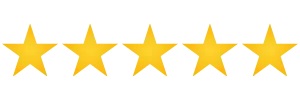
"It opens a ton of doors for you without exhausting your own time and efforts. The support from the team and the automations have all been very helpful and fluid."
-Jen

"[Jason is] reliable, genius, integrous and open. Without a doubt, man of his word who is open to change, clear on objectives."
- Samantha

"Honestly, I’m not technical. But your team walked me through it all, and it just works."
-Cliff

"Without this system, we would’ve lost half our leads. This fixed the cracks we didn’t know we had."
-Samantha

I Saw a 5x Return -- That's Real
- Ezra

Who is Jason Littrell?
Jason Littrell is a seasoned cocktail maker, bar consultant, event producer, speaker, author, and brand marketing expert with over a decade of experience in the hospitality industry.
What services does Jason Littrell offer?
Jason offers a range of services including bar consultancy, cocktail menu development, staff training, event production and management, keynote speaking, educational workshops, and brand marketing strategies in NYC, 100% free of charge. For more details, please use the chat widget or contact form.
Can Jason Littrell help in designing and setting up a new bar?
Absolutely. Jason specializes in bar consultancy, including design, menu creation, staff training, and operational efficiency, tailored to the unique needs of each client.
As a speaker, what topics does Jason typically cover?
Jason speaks on a range of topics including cocktail culture and history, bar and hospitality industry trends, brand building, and customer engagement strategies.
Has Jason Littrell authored any books or articles?
Yes, Jason is the author of Bartender as a Business, and contributed to several publications in the field of cocktails and hospitality.
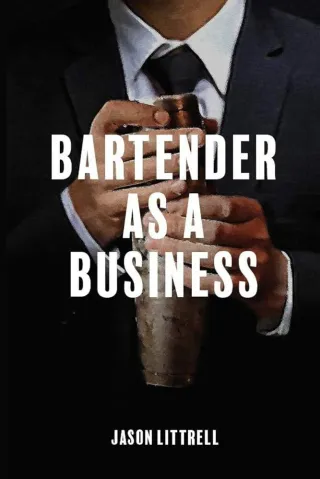
How does Jason approach brand marketing in the hospitality sector?
Jason combines his deep industry knowledge with innovative marketing techniques to create compelling brand narratives and engagement strategies that resonate with target audiences.
What is Kinetic Management Systems?
KMS is the business Jason owns that implements hospitality management systems for sales, marketing HR, and operations. This site is built with KMS, and if you call any of the phone numbers, fill out any of the forms, engage with the chat, you're engaging with KMS systems. For more info, check out kmsops.com
What makes Jason’s approach to cocktail making and bar consultancy unique?
Jason's approach is rooted in a deep understanding of both the art and science of cocktail making, combined with a keen insight into current trends and customer preferences, making his consultancy highly effective and personalized.
Terms of Service

(C) 2025 Critical Mass Events, LLC (d.b.a. Jason Littrell, Ltd.)
All Rights Reserved
Text or Call 917-983-2150
